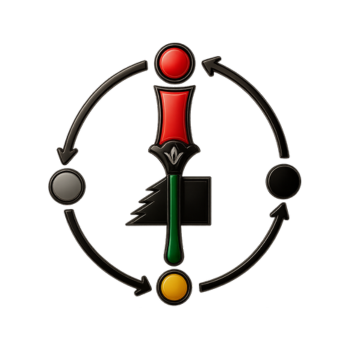-
Precolonial traditional education in Cameroon as a whole existed and operated on a popular belief that for any society to be able to withstand the passing of time and it’s challenges, the elders have to teach the young the know how of their sociocultural, economic and political activities. The type of education or teaching which was given to the children in their early childhood in the Bamun Kingdom as well as in other traditional societies of Cameroon, was by their mothers, babysitters (brothers and sisters) and their fathers.
Most skills were acquired by watching elders and beginning to act in like manner. The mothers went along with girl children when engaged in their socio-economic responsibilities. This was the forum for teaching them how to perfectly undertake female-related duties, especially the task of future leadership both in the family and in the community.
Part of the informal education was also in the hands of experts in basic skills. In most, if not all the Western Grassfield chiefdoms, vocational training like blacksmithing, traditional healing, priesthood, thatching, carving, pottery and weaving was in the hands of the experts. Parents entrusted their children to the professionals (in case where the parents themselves did not do these activities) who trained them in groups and individually. The introduction of Islam especially in Foumban greatly modified this informal education.

